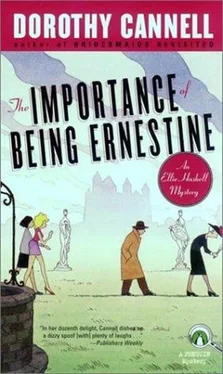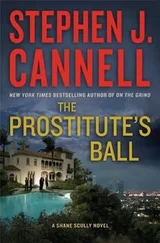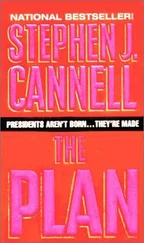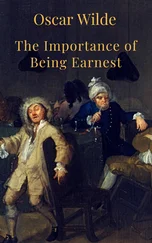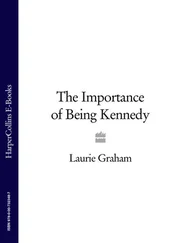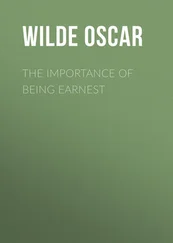“Looks the right sort of place for a murder!” Mrs. Malloy had her nose pressed to the windscreen.
“What a monstrosity!” I was truly appalled. “All those towers stuck up on the roof like a bunch of cannons, and the whole thing looking like a boys’ reformatory school in some black and white film from the 1920s. Probably at some point in its history it was a perfectly charming house-until some fiend decided to modernize it and then not being happy with the results glued the towers back on and hammered big iron nails in the front door.”
“Okay! Okay!” Mrs. Malloy climbed out of the car to stand beside me. “I can see for meself it needs to be knocked down and put out of its misery. Now tell me again,” she was looking uncharacteristically nervous, “what sort of things I’m to say to show I knows what I’m talking about.”
“You could suggest that the fireplace needs merchandising.”
“Meaning they should sell it?”
“That,” I said, hoisting the bag containing furniture catalogues and fabric samples onto the curve of my arm, “it should make a decorating statement. Look, follow my lead and you’ll be fine.”
“That’s right, let you queen it while I walk three places behind like poor Prince Phillip!” She was still grumbling as we mounted the broad sweep of steps to the front door, and would undoubtedly have gone on indefinitely if it had not been opened almost immediately by a man in a dark jacket and sober tie. He was short and almost completely bald. His age appeared to be in the sixties. His expression intimated nothing more than a mild inquiry.
“Good morning.” One of his eyebrows shifted a hair or two.
“Haskell and Malloy, interior designers.” I tapped the bag and beamed at him. “Lady Krumley did say to expect us?”
“I know nothing of the matter, madam.” He stepped aside for us to enter and closed the door behind us. “If you will wait here”-indicating the large and intensely gloomy hall-“I will apprise Mr. and Mrs. Edmonds of your arrival.” His was the sort of face that one sees on dozens of buses, neither good looking nor ugly and impossible to describe five minutes later. But Mrs. Malloy was eyeing him coyly.
“Have you and me met somewhere?”
“Not that I recall, madam?”
She giggled. “Then it’s on to the next line, isn’t it? Do you come here often?”
“Frequently. I’m Watkins, Lady Krumley’s butler.” He turned and entered a door to our left, leaving Mrs. Malloy with a sigh on her lips and a dreamy look in her eyes. “I’d have sworn, but I suppose it could be as how he reminds me of Cary Grant.”
“Have you had your eyesight checked recently?”
“It’s the voice.” She now stood admiring herself in a mirror, carved with bunches of gigantic fruit, hung above a table topped with a bilious shade of green marble. “All lovely and posh, but with a hint of earthiness underneath. Give me a man of mystery any day. So long as he’s not the sort to look down his nose at bingo.”
“Slip him a note before you leave. Just don’t suggest meeting him at moonlight by ye old wishing well. Remember it’s usually the butler who did it in these situations.”
“You’re right!” Mrs. Malloy froze in place. “How could I have been so taken in? Now you say it, there is something about his eyes-sort of shifty like-and that nasty cruel twist to his mouth. I’ve been missing Milk, that’s my trouble. Now there’s a real man if ever there was one.”
“You haven’t heard from him?”
“Not a dickie bird.”
I was staring at the black oak staircase that, in conjuction with a fireplace suitable for roasting an ox, dominated the far end of the hall, when Watkins reappeared.
“If you will be so good as to follow me, Mr. Edmonds will see you now. Mrs. Edmonds is out, but is expected back shortly.”
“If we might leave our coats?”
“Certainly.” He waited patiently for Mrs. Malloy to finish unbuttoning hers, laid them across a chair, sprouting more carved fruit, and led us into the room that he had just vacated. “The decorators, sir,” he informed Niles Edmonds who was hovering in the center of the room looking as if he had wandered into the women’s loo by mistake and was about to have half-a-dozen rolls of toilet paper hurled at him.
“Thank you, Watkins.” His bleating voice matched his sheepish look.
“If you should require me, sir, to have the furniture draped in sheets and the floors covered with plastic cloths, I will arrange for it to be done with all due speed. I am sure that Mrs. Hasty would be happy to oblige by coming up from the cottage to lend a hand.”
“Yes, quite! Absolutely! Good idea.” Niles Edmonds retreated back a few paces under Mrs. Malloy’s frowning stare.
“We’re not them kind of decorators-the ones with paint pots and brushes.” She set about putting him straight before Watkins was out the door. “Me and my partner, Mrs. Haskell here, are a high-cost operation. I’d have thought as you’d have been able to tell that by this hat I’ve got on me head. A model it is, bought at one of them fancy boutiques, like I expect your own wife shops at. But of course there’s them that can wear hats and them that looks like they’ve got a colander on their head. You can put people in big houses I always say, but you can’t always make them look the part.”
“Very true. Your point is well made. Couldn’t be better expressed.” The man appeared ready to collapse on the carpet that looked as though it might have seen better days, perhaps in the time of Henry VIII, although the room wasn’t of the Tudor style. It was a game room. Not the billiard table, chess set sort, but the other… wild animal kind. Almost every inch of wall was covered with furry heads. Everywhere I looked there were glass eyes gazing at me with deepest reproach. Unbidden, the tune to “Old Macdonald Had a Farm” wormed its way into my head, and I caught myself humming “here a moose head, there a moose head, everywhere a moose moose.” Before I could burst into song, Mrs. Malloy kindly trod on my foot with her four-inch heel, and I was able to meet Niles Edmonds’s eyes without a song in my heart.
“Didn’t we meet at the hospital?” He adjusted his glasses for a better look. His frown etched lines on his forehead all the way up to his receding hairline. Here I suspected was a man living permanently in a state of perplexity. It was cruel to keep him on pins and needles for a moment longer than necessary. Seemingly, it was all up to me. Mrs. Malloy was prowling the room, inspecting the cushions on the half-a-dozen armchairs that, in addition to two sofas, encircled the fireplace with an eight-foot tapestry rotting away above it.
“That’s right, Mr. Edmonds, we spoke in the corridor outside Lady Krumley’s room at the hospital. You mistook us for social workers, and neither Mrs. Malloy nor I felt in a position to correct you, because her ladyship had told us that she wanted to surprise you and your wife with her plans to redecorate.”
“Yes, quite! A very difficult position for you.” He waved a limp hand. “Won’t you please be seated?”
“Thrilled!” Mrs. Malloy gingerly lowered herself onto a wooden chair, of the sort that might conceal a chamber pot for use in emergencies, while I perched on a sofa.
“I do understand Aunt Maude’s wanting to keep it a secret until the last minute,” Niles murmured with doleful resignation.
“Likes her little surprises, does she?” Mrs. Malloy elevated a penciled eyebrow.
“Dear Auntie! She’s very sensitive to my feelings, knowing that change of any sort can bring on one of my attacks.” He demonstrated with a wheeze, but rallied after thumping his chest and grasping the arms of his chair. “I suppose she thought it best to say nothing until she had brought you on board ship. Indeed I do see that there are things needing doing to the house. Things have rather been allowed to slide since Uncle Horace’s death. And Watkins is not the butler Hopkins was,” he said through another pathetic wheeze, “but he’s done his best these past five years while managing with shortage of staff. We’ve been without a housekeeper since Mrs. Snow retired. It’s all been very hard on my wife. Cynthia married me hoping for better things.”
Читать дальше
